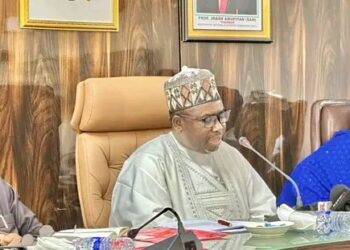The Coalition of Northern Groups (CNG), has condemned the current state of Nigeria, attributing the nation’s ongoing crises to poor leadership.
They also criticized the government’s inability to inspire confidence among citizens, pointing out that many Nigerians are disillusioned, as evidenced by the muted response to recent independence celebrations.
National Coordinator of CNG, Comrade Jamilu Aliyu Charanchi, in a chat with The Guardian, expressed deep concerns about the pervasive dysfunction across various sectors, including the economy, security, and health care.
Charanchi urged that the key to resolving Nigeria’s multifaceted crises lies in establishing strong, empathetic leadership. Without this change, he warned that the country will continue to face stagnation and decline.
He said: “Nothing is working in this country. Be it the commercial sector, be it economic sector, be it security sector, be it whatever it is, be it communication sector, whatever it is, Nigeria is at a standstill.
“Nigeria is not working. Nigeria is not functioning. Nothing is working. Everything is gradually becoming like a kangaroo agenda in this country. So, it is not by surprise that Zenit Bank is encountering one problem.
“All other banks and banking sectors are encountering such kinds of problems. Even in the communication center, we cannot even communicate with you properly for two minutes. And in the name that we have a country, a country with leaders, leaders that have sympathy for their people, no, that one, nobody will take that.
“That’s why you see even the independence celebration, nobody is even celebrating the independence today. People are even forgetting that Nigeria’s independence was yesterday because they don’t even have the country at their heart, because the leaders don’t even know what they’re supposed to do, because the country is not working.
“So, the solution to our old crisis in this country, whatever crisis you think that we may find ourselves in, be it the social crisis, economic crisis, security crisis, educational crisis, health crisis, whatever crisis you are thinking in this country, the solution is good leadership.
“If we have the desired leadership in this country, then definitely every sector will function effectively, including the banking sector and whatever sector. But as much as we are going to live on this rotten leadership, selfish leadership.”










